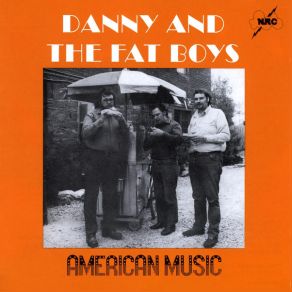American Music
Download links and information about American Music by Danny Gatton. This album was released in 1975 and it belongs to Jazz, Rock, Rock & Roll, Country, Rockabilly, Bop genres. It contains 12 tracks with total duration of 49:28 minutes.

|
|
|---|---|
| Artist: | Danny Gatton |
| Release date: | 1975 |
| Genre: | Jazz, Rock, Rock & Roll, Country, Rockabilly, Bop |
| Tracks: | 12 |
| Duration: | 49:28 |
| Buy it NOW at: | |
| Buy on iTunes $9.99 | |
| Buy on Amazon $8.99 | |
Tracks
[Edit]| No. | Title | Length |
|---|---|---|
| 1. | American Music | 3:05 |
| 2. | Hauled Off and Loved Her | 2:16 |
| 3. | Good Enough To Keep | 2:53 |
| 4. | Ubangi Stomp | 1:52 |
| 5. | After Hours | 5:33 |
| 6. | Honeysuckle Rose | 3:31 |
| 7. | A Tribut To Amos Milbourne | 5:55 |
| 8. | Tv Mamma | 4:36 |
| 9. | Memphis (disco Funk) | 5:40 |
| 10. | Move On Down the Line | 3:42 |
| 11. | Opus De Funk | 6:24 |
| 12. | Harlem Nocturne | 4:01 |
Details
[Edit]Danny Gatton's debut as a bandleader proved notable for its celebration of neglected idioms like rockabilly, which energized roots music advocates around his native Washington, D.C. Bassist Billy Hancock's up-tempo title track comes across as a rallying cry of sorts, an impression underscored by the Clovers' presence on backup vocals. That's not the only unique thing happening here, however. American Music outlines the blueprint for Gatton's future development, where he covered whatever territory took his fancy. Whatever you want, it's all here, including Gatton's affinity for country surfaces on "Hauled off and Loved Her," which features a classic Hancock sung-spoken monologue. Gatton and pianist Dick Heintze — an important collaborator in this era — let their bluesier side fly on "After Hours" and "TV Mama." The band's rockabilly is present and correct on "Ubangi Stomp," as are nods to R&B ("Memphis Disco Funk") and even reggae (Hancock's resigned "Move on Down the Line").
Naturally, there's also plenty of the swing and jazz that Gatton played so fearsomely well. Hard-bopping versions of Benny Goodman's "Good Enough to Keep" naturally coexist with "Harlem Nocturne," which is far more laid-back here than the biting live show piece it would later become. Gatton would famously dismiss the album as "so many different things with different guys who didn't play with us." That's true as far as the credits go, but it's also the diversity which makes this album such a fascinating listen. Five years before roots music became hip to explore, Gatton and friends knew the secret, as Hancock's title song so eloquently states ("never could I find such good American music and it's mine"). The thrill starts here for Gatton fans.